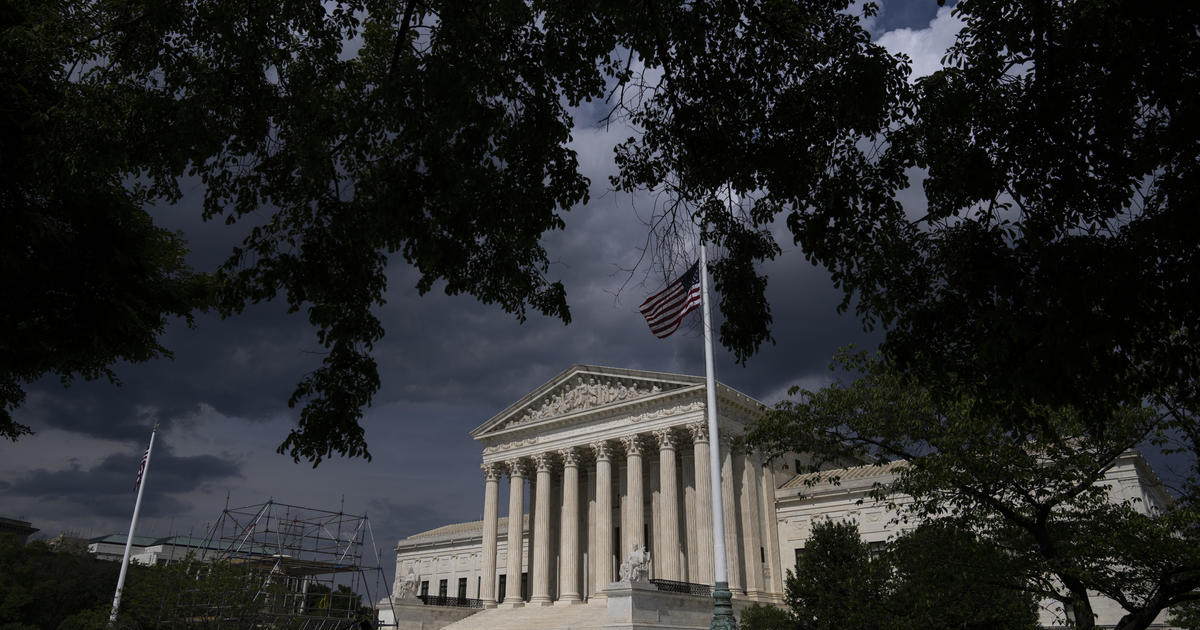
Supreme Court narrows scope of computer fraud law with ruling in cybercrime case
CBSN
Washington — The Supreme Court on Thursday narrowed the reach of a federal computer fraud law that seeks to address hacking and other cybercrimes, siding with a former Georgia police officer who was convicted of violating the measure after using his patrol-car computer to access a law enforcement database for license plate information in exchange for money.
The high court ruled 6-3 in favor of the former Cumming, Georgia, police sergeant, Nathan Van Buren, and limited the conduct that can be prosecuted under the Computer Fraud and Abuse Act of 1986 (CFAA). The law makes it illegal to access a computer without authorization or to use authorized access to obtain or alter information a person is not entitled to. Justice Amy Coney Barrett, the court's newest member, wrote the majority opinion and was joined by fellow Trump appointees Justices Neil Gorsuch and Brett Kavanaugh, as well as liberal Justices Stephen Breyer, Elena Kagan and Sonia Sotomayor. Chief Justice John Roberts and Justice Clarence Thomas and Samuel Alito ruled against the former police officer.
Barry Morphew, a longtime suspect in his wife's disappearance and murder, was arrested in Arizona on June 20, 2025, two days after he was indicted on a first-degree murder charge in the case of his wife Suzanne Morphew's death. This was the second time Barry Morphew has been arrested and charged in her death. The initial charges were dismissed without prejudice, meaning authorities reserved the right to charge him again.





















 Run 3 Space | Play Space Running Game
Run 3 Space | Play Space Running Game Traffic Jam 3D | Online Racing Game
Traffic Jam 3D | Online Racing Game Duck Hunt | Play Old Classic Game
Duck Hunt | Play Old Classic Game










